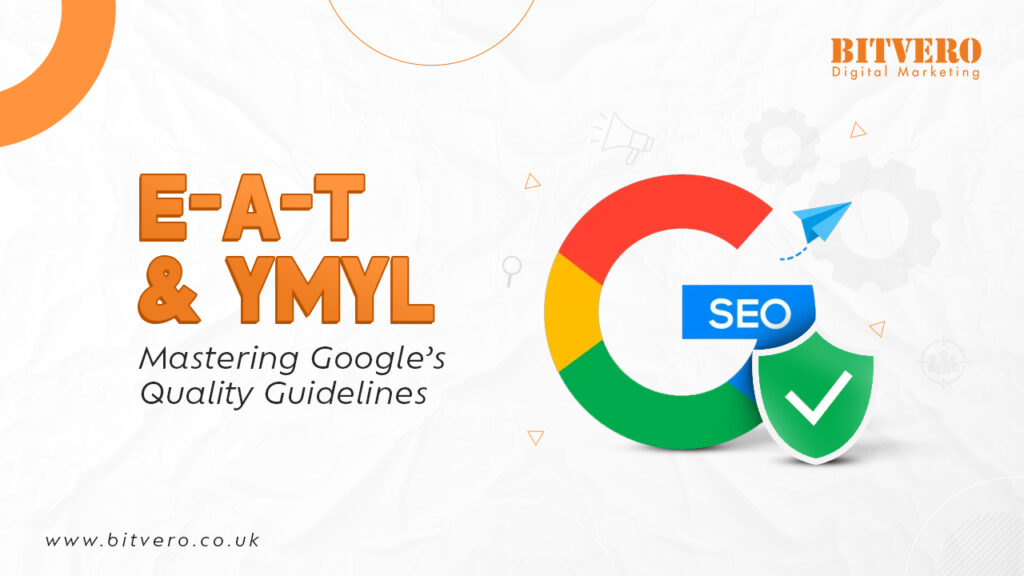E-A-T and YMYL: Mastering Google’s Quality Guidelines

You already know that Google has tons of ranking factors in place for website SEO rankings. This includes all the on-page factors, off-page factors or UX factors. Besides, there are many other factors as well that Google keeps updating occasionally.
The latest being EEAT and YMYL. These are two different criteria that are somehow closely interconnected. You know, these days, AI is common in web content, with generative AI dominating the most.
Concerning the content quality of indexed web pages, Google introduced these two ranking factors: EEAT and YMYL.
Let us understand their importance one by one.
Read also: Will Google Penalize AI Content: What is EEAT in Google’s Algorithm?
What is E-E-A-T?
EEAT stands for Experience, Expertise, Authoritativeness, and Trustworthiness. As the name suggests, this factor prioritises websites whose content demonstrates these qualities. Google wants online content to be helpful for users, and when it is written by people with experience or expertise in a field, it is worth it rather than just meant for getting web traffic.
However, Google doesn’t require a piece of content to possess all four factors simultaneously. Even if one of them is present, Google favours that content in search rankings.
The reason behind this is obvious. Many people without knowledge or checking the credibility of a are generating quick content from AI tools, which is neither quality nor reliable but only meant to manipulate SEO rankings.
Read also: State of SEO: Google Search Algorithm Updates for 2024
What is YMYL?
YMYL stands for Your Money, Your Life. Google introduced this criterion in search rankings for web pages whose content can impact users’ financial lives for health. This can include topics like medical information, financial advice, legal guidance, etc. If not coming from the concerned field expert, Google knows such content can negatively impact users’ lives, so it places only those pages on priority, which seem to be written by experts and are reliable- in short, possess EEAT qualities.
Google itself, in its SGE AI snapshots, avoids generating information for the YMML category because of sensitive topics.
How to improve E-A-T & YMYL on your website?
Here are some tips to improve your website E-A-T and YMYL.
Create high-quality content
Creating high-quality content is the key to these factors. Because Google says we prioritise those websites creating content to help users and not to get clicks, this becomes important to ensure your website content remains helpful and satisfying users if you do not want your website to be buried somewhere by E-A-T & YMYL ranking factors.
Establish Expertise
Demonstrating the experience of a content writer on your web page is important. For that reason, you can add the author’s bio, and showing certifications and affiliations can also help you establish your expertise among users.
Build Authority
Building authority is another important goal. To do this, you can get backlinks from reputable websites and vice versa.
Prioritise trustworthiness
Google prefers reliable information. That is why you must back your content with factual intimations with their sources. Also, keeping content plagiarism-free and error-free can help you avoid being beaten in EEAT and YML forums.
Must Add EEAT in YMLM content
As said, YMYL content contains sensitive information. This can majorly impact user decisions related to life, money, or health. Whatever the case, Google suggests staying more careful in such a niche. So, paying more attention to EEAT qualities in the YMLM content category can give an advantage in search rankings.
Read also: Google RankBrain and SEO: What’s in For You?
If you found the information helpful please do subscribe to our blog. Here, you can get more valuable information on topics like digital marketing, AI, SEO trends and more,

